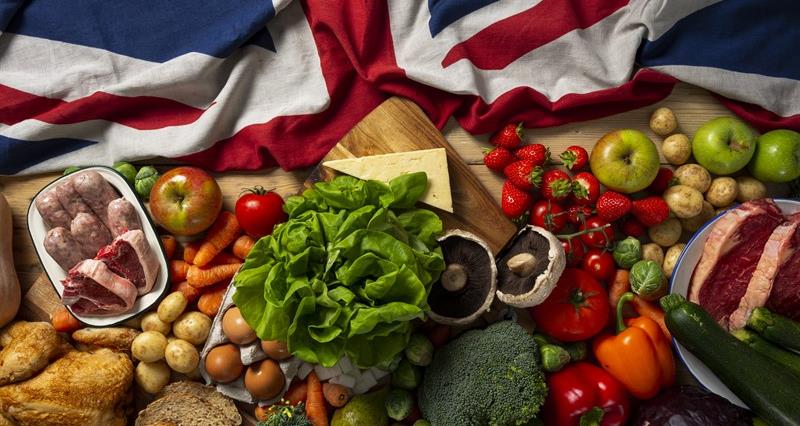The campaign started back in February when a petition was launched calling on the government to put in place laws to prevent food being imported into the UK produced to lower standards than our farmers and growers produce to. The simple ask of not undermining our high food production standards struck a chord with the public at a time when so much in life was uncertain.
Famous names like Jamie Oliver and Jimmy Doherty united behind the NFU’s clear ask alongside other influential groups like World Wildlife Fund, the RSPCA and Which. This unlikely coalition helped galvanise support and saw the petition become one of the largest this country has ever seen, being signed by over one million people. The Mail on Sunday also got behind the campaign with weekly features from vets, politicians, chefs and farmers all highlighting the potential scandal of undermining British farmers.

In the face of such views the government listened, setting up the Trade and Agriculture Commission to review all future trade deals in the summer. This move was welcomed, but the NFU continued to campaign to ensure the Commission’s remit was strengthened to provide scrutiny on all trade deals and that scrutiny was incorporated in the Agriculture Bill, prior to it becoming law. Click here for details on the Commission.
NFU President Minette Batters re-iterated that “This autumn is a critical time for British food and farming with the new Agriculture Bill being passed into law and trade negotiations, including crucial talks with the EU, continuing. A successful farming future rests on how the government shapes trade deals with countries around the world and supports farming in the coming months and years ahead. It must ensure we aren’t put at an unfair competitive disadvantage from food imports that would be illegal to produce here.”
Over the last two months MPs post bags have been filled with letters asking for the Commission to be strengthened to provide MPs with the information they need to scrutinise all trade deals prior to them being agreed in Parliament. This strength of voice coupled with meetings at the highest level of government, including the NFU President meeting with the Prime Minister, has led to the announcement that the Trade and Agriculture Commission is being made a statutory body to give independent advice on trade deals that impact food and farming as they go through Parliament. This huge win would not have been possible without you, the public.
So, why is an official Trade and Agriculture Commission such a victory for British food and farming and the food we eat?
Find out below. Click on the question to reveal the answer.
The Commission, made up of independent food, farming and environmental experts from across the UK, will advise the government on the impact of any future trade deals in a report that will be laid before parliament before any deal is ratified. The report will focus on the impact on animal welfare and UK agriculture. Politicians will have 21 days to scrutinise, debate and vote on the findings of the Commission before any trade deal is approved by parliament.
Yes. Crucially the government has promised to put it on a full statutory footing (i.e. in law). Its role will be to produce a report for Parliament on the impact of all new trade deals on British food and farming. This enables MPs to scrutinise trade ahead of the 21 day ratification period.
Yes. The legislation is set to be in both the Agriculture Bill and the Trade Bill before the end of the EU Exit transition period, which is due to be 31 December 2020.
Yes. The commission will make it abundantly clear where trade deals could be letting in food imports that would be produced to standards that would be illegal here. And even more importantly it offers some solutions to what is likely to be a very complex negotiating process for the UK Government. We must then trust the democratic process and elected representatives to back British farming.
That is certainly a possibility. But it is also very possible that they will listen to the commission as it acts in the best interests of the country and MPs know from recent months campaigning that food standards is an issue their constituents care about.
Yes. This issue is far from over. Dozens of trade deals are set to be struck in the coming months and years. We'll need our farmers and campaign supporters to keep highlighting the importance of high food standards and to help MPs understand how much we all care about the food on our plates, the animals we look after and countryside we all treasure.
